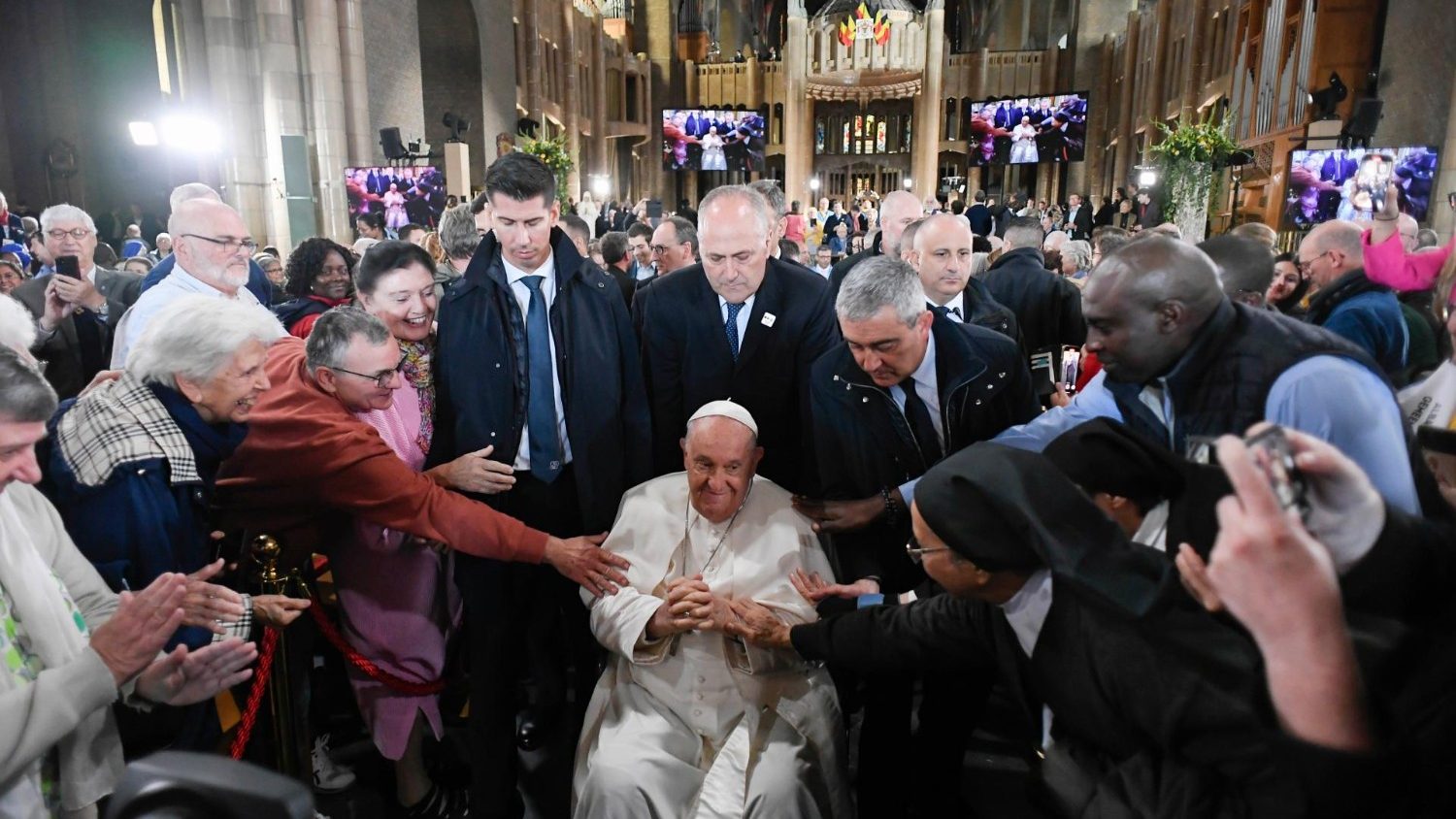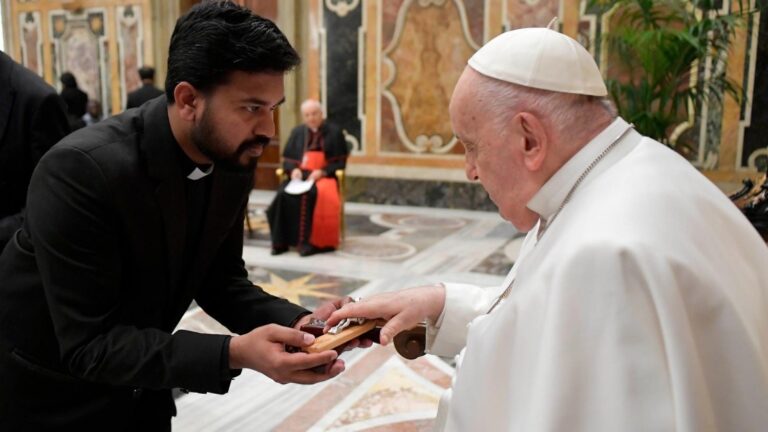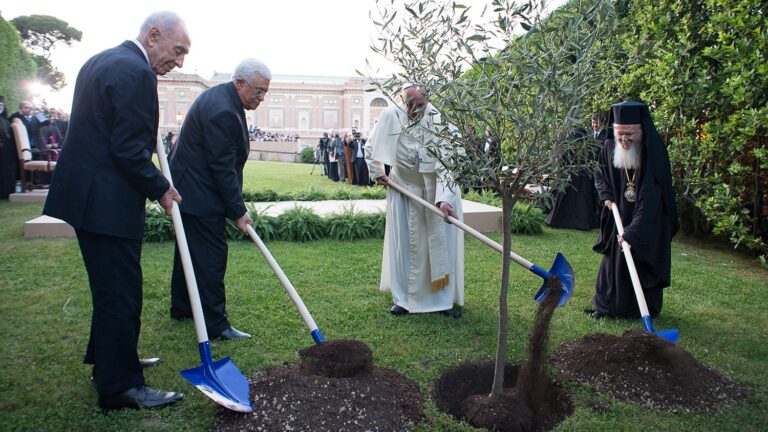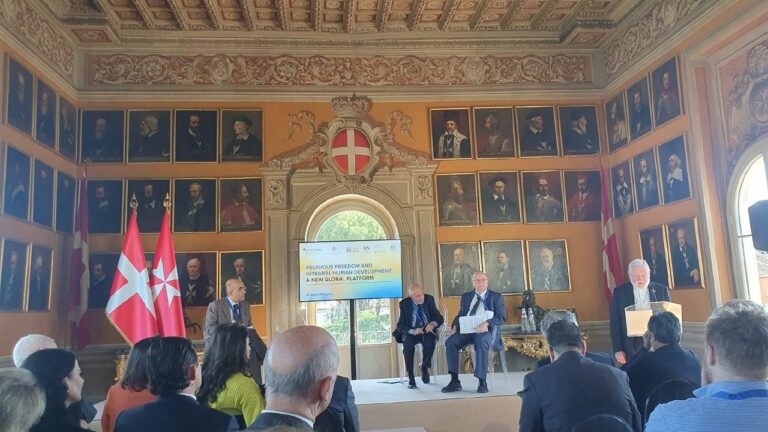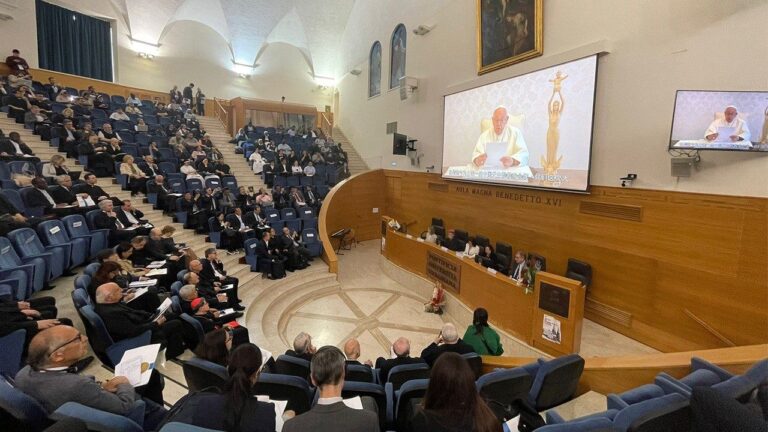The purpose of the Synod and ‘fashionable’ reforms
Our editorial director, Andrea Tornielli, returns to the words of Pope Francis to the clergy and religious of Belgium regarding the second session of the Synod on synodality, which takes place in October.
By Andrea Tornielli – Brussels
What is the priority of the Synod which is about to begin? What is the main and most important goal of the synodal reform of the Church?
From Brussels, at the Basilica of the Sacred Heart in Koekelberg, where he met with bishops, members of the clergy, religious and pastoral agents, Pope Francis outlined a response by asking a question.
“The synodal process,” he said after listening to a testimony, “must involve a return to the Gospel. It is not a question of prioritizing “fashionable” reforms, but of asking: “How can we bring the Gospel to a society that no longer listens or has moved away from the faith?” Let’s all ask ourselves this question.
No “fashionable” reforms, therefore. Nor is there room for programs that – on the one hand – advocate functional changes but end up clericalizing the laity, nor for those that – on the other hand – aim to restore a past era influenced by neoclericalism.
Both perspectives ultimately downplay the urgent and fundamental issue that Pope Francis has reiterated: the proclamation of the Gospel in secularized societies.
Both of these perspectives end up forgetting the only true goal of any reform of the Church: the salvation of souls, the care of God’s holy and faithful people.
By putting at the center the question of the Pope, which was the reason for the Second Vatican Council, and by placing at the center the well-being and care of the people of God, it becomes clear that synodality is the way of living communion in the ‘Church. .
It is not an additional bureaucratic task for the clergy and laity who adopt it reluctantly and only in words, remaining in practice still tied to the models of a century ago. This is not the master key through which to justify every initiative in the world.
Synodality is, on the contrary, the full expression of a lived communion. We can only bear witness to our brothers and sisters when we are aware that we are all loved by God and we live the Gospel with joy, aware of the fact that whatever our role in the Church, we are called by the Other and it is He who guides His Church.
